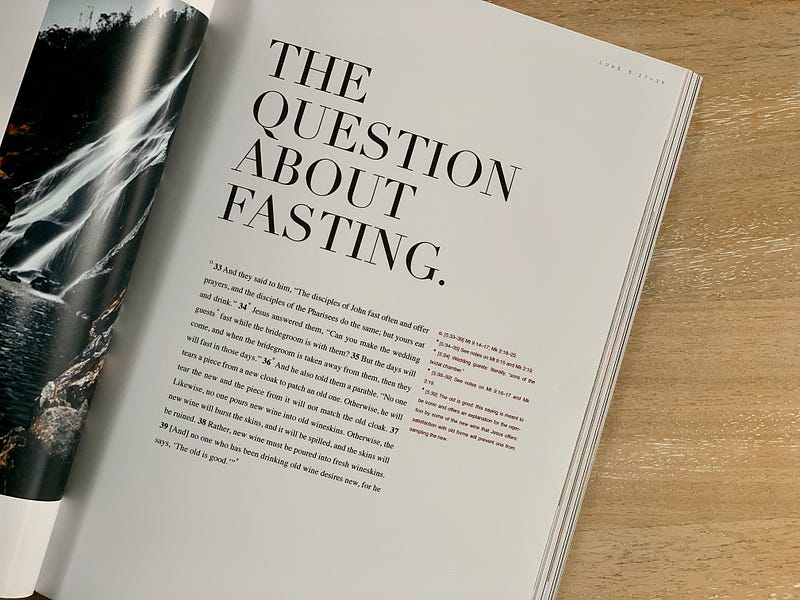Intermittent Fasting and Muscle Preservation: What You Need to Know
Written on
Understanding Muscle Retention During Intermittent Fasting
Intermittent fasting (IF) has gained popularity, but concerns about muscle loss during this dietary practice remain prevalent.

When I first began intermittent fasting four years ago, many of my friends and family worried I was depriving myself. After explaining the approach, I was surprised to find several of them embracing the lifestyle once they saw its positive effects. They transitioned from consuming 6-7 meals daily, experiencing significant results without meticulously tracking calories.
However, one question lingered: “Will I lose muscle mass?” This is a legitimate concern, as it seems reasonable to think that fasting could lead to muscle loss. Yet, evidence suggests otherwise.
What Happens to Our Bodies When We Fast?
While I won’t delve into the specifics of intermittent fasting methods, it typically involves fasting for 16-20 hours a day, sometimes extending to 72 hours. During this period, individuals usually consume only water, black coffee, black tea, or green tea, avoiding any sweeteners or milk.
According to the American Heart Association, intermittent fasting has been shown to aid overweight individuals in weight loss, lowering triglyceride and LDL cholesterol levels, and decreasing insulin resistance. A 2019 study in the New England Journal of Medicine highlighted the benefits of intermittent fasting, showing reductions in obesity, insulin resistance, hypertension, and inflammation. Clearly, intermittent fasting has numerous health advantages.
What happens when our body lacks food? Will our blood sugar levels drop too low? Glucose serves as the primary energy source for our brains, while other bodily functions, such as red blood cell activity, rely exclusively on glucose. This may raise concerns about potential harm from insufficient glucose supply.
In response, the body utilizes stored glucose from the liver and muscles. We store glucose as glycogen, and when our blood sugar levels decrease, the body taps into these glycogen reserves.
What occurs when glycogen stores are depleted?
Our bodies can generate glucose through a process called gluconeogenesis, which converts amino acids and free fatty acids into glucose.
This raises a concern: if we aren’t eating, might we start losing muscle due to gluconeogenesis breaking down muscle amino acids? Surprisingly, this isn't typically the case.
Scientific Insights on Muscle Loss During Fasting
In 2009, researchers examined intermittent fasting's impact on a group of obese participants. The 16 subjects (12 women and 4 men) underwent a 10-week alternate-day fasting regimen, consuming food every other day without engaging in additional muscle-preserving activities like strength training and with minimal protein intake. At the conclusion of the study, fat loss accounted for all weight reduction, with muscle mass remaining unchanged. This finding was noteworthy.
A subsequent study published in the International Journal of Obesity compared weight loss between women practicing intermittent fasting and those on calorie-restricted diets. While women in the calorie-restricted group lost an average of 5.6 kilograms, those in the intermittent fasting group shed 6.4 kilograms. Both groups experienced a similar percentage of weight loss from fat, suggesting that intermittent fasting is equally effective in preserving muscle mass compared to calorie restriction.
Furthermore, a meta-analysis encompassing twenty-eight studies indicated that alternate-day fasting was more effective than traditional calorie restriction for preserving muscle mass. Such meta-analyses are regarded as the pinnacle of scientific evidence, as they aggregate results from various studies to eliminate biases.
The findings suggest that fasting does not lead to muscle loss, especially in obese individuals who typically carry more fat reserves.
What About Normal-Weight Individuals and Athletes?
In 2016, researchers explored the effects of intermittent fasting on men undergoing physical training for eight weeks. The total caloric intake remained constant, and macronutrient distribution was consistent across groups. The intermittent fasting participants consumed their meals at 1 p.m., 4 p.m., and 8 p.m., while the calorie-controlled group ate at 8 a.m., 1 p.m., and 8 p.m. Although the intermittent fasting group lost slightly more fat, both groups maintained their muscle mass and increased overall strength.
What conclusions can we draw from these studies? Current evidence does not strongly support the idea that fasting leads to muscle loss.
With the numerous benefits associated with intermittent fasting, there's no reason to fear trying it. Adherence to the practice is crucial; those who can commit to fasting long-term will likely reap greater benefits than those who only attempt it briefly.
Key Takeaways
In summary, intermittent fasting is an effective strategy for weight loss and improving health markers, provided it is maintained over time. Adopting it as a lifestyle will help maximize its benefits.
You need not worry about muscle loss, as scientific studies indicate that fasting does not pose a risk to muscle mass. A balanced diet rich in protein and fiber is ideal for weight loss, regardless of your fasting approach.
Intermittent fasting stands as a time-tested method for weight management and health improvement. For those interested in science-backed weight loss strategies, consider exploring the following insights.
This video titled "Does Intermittent Fasting KILL MUSCLE? (Diet Confusion)" explores common misconceptions about muscle loss and intermittent fasting.
In this video, "Does Fasting Destroy Your Muscle? | Jason Fung," Dr. Fung discusses the implications of fasting on muscle preservation and overall health.
References
- Meal Timing and Frequency: Implications for Cardiovascular Disease Prevention: A Scientific Statement From the American Heart Association.
- Effects of Intermittent Fasting on Health, Aging, and Disease, Rafael de Cabo, Ph.D. and Mark P. Mattson, Ph.D.
- Short-term modified alternate-day fasting: a novel dietary strategy for weight loss and cardioprotection in obese adults Krista A Varady et al.
- Alternate-day versus daily energy restriction diets: which is more effective for weight loss? A systematic review and meta-analysis.
- Effects of eight weeks of time-restricted feeding (16/8) on basal metabolism, maximal strength, body composition, inflammation, and cardiovascular risk factors in resistance-trained males.